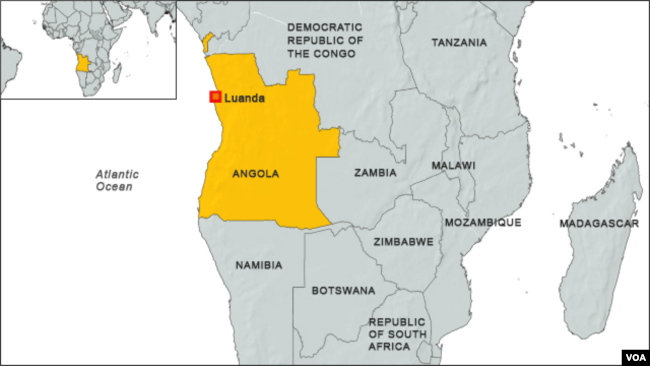U.S. President Joe Biden hosted the president of oil-rich Angola for the first time Thursday, with the leaders focusing on a $1 billion, U.S.-funded rail development that aims to connect the oil-rich nation’s ports to the continent’s resource-rich interior, and in doing so, perhaps loosen China’s hold on the continent.
The leaders also agreed to hold a dialogue next year “focused on the secure and stable supply of energy and deeper commercial ties while advancing our shared climate goals.” The U.S. has held similar talks with African oil giant Nigeria.
Biden cast this rare Oval Office visit by an African leader as an exemplar of his retooled Africa strategy.
Seated next to President Joao Loureno and in front of a roaring fireplace, Biden said, “As you’ve heard me say before, America is all in on Africa.”
He added that the continent “has 1 billion people. Critically important, how it functions to the whole world.”
In 2023, Africa’s population totaled about 1.4 billion, according to the CIA’s World Factbook.
Details aside, the continent, and Angola in particular, should be seen as a big deal, said Jean-Michel Mabeko-Tali, a Howard University history professor.
“In my opinion it’s an essential partner,” he told VOA. “Of course, it depends on how America wants to look at another African country such as Angola. If it looks at Angola as just another country with which you can only deal on light issues, well, that does not benefit Angola.
“If we remember that it’s a country with a long history of conflict resolution, nationally and regionally, it would be positive and not just as another country with natural resources that America is interested in,” Mabeko-Tali said.
The two leaders’ hourlong meeting Thursday mainly focused on a U.S.-funded rail corridor that would run from Angola’s oil-rich coast deep into the African interior, where China and the U.S. are competing for access to resources. The route cuts through volatile southern Congo, which is rich in rare earth minerals, and dips into copper-rich Zambia.
“The U.S. engagement in the Lobito Corridor in telecommunications and energy, mainly green energy, is an evidence of that support, because infrastructures like those will help the development not only of Angola, but the whole African continent,” Lourenco said.

Angola
VOA asked the White House how this corridor, to which Biden has committed $1 billion, can work without peace in Congo, which is part of Lourenco’s work as the African Union’s top peace envoy.
National Security Council spokesperson John Kirby didn’t say what steps the administration is taking to support Lourenco’s efforts in the troubled region, where matters are complicated by a few long-serving leaders with large personalities, well-documented violations of human rights, civil liberties and democratic practices, and a history of interfering in each others’ affairs.
Instead, Kirby pointed to the administration’s efforts through Biden’s Partnership for Global Infrastructure and Investment, widely seen as the U.S.’ counter to China’s much larger Belt and Road Initiative.
“The president’s very excited about this,” Kirby said. “This is a real landmark effort as part of PGII, helping lower-middle income countries find sustainable investments in their infrastructure that can not only create jobs, but also open up economic opportunities in this case, all across that southern part of sub-Saharan Africa. So it’s very exciting. And we’re going to, we’re going to keep pushing.”
Analysts say the corridor’s success depends on lasting peace in Congo, which votes next month in a contest between the incumbent and the leader of the southern state that will host the corridor. But also, China may have a role to play.
“There’s going to be a need to cooperate while also compete with China in order to make the Lobito corridor a success, and I think that’s sort of what’s happening behind the scenes with China,” Michael Walsh, a senior fellow in the Africa Program at the Foreign Policy Research Institute, told VOA. “The Lobito corridor is both competition, and to some extent, is going to probably be cooperation.”
VOA also asked what Biden wanted to communicate to Lourenco about criticism of his human rights record.
“We never shy away from talking about human rights,” Kirby said. “The president routinely brings that up.”
Lourenco stopped for less than a minute with the gathered press before he left the White House. The meeting, he said, was “better than I expected.”
Source: VOA

